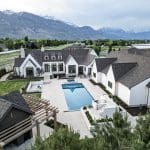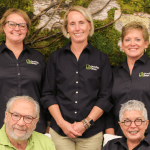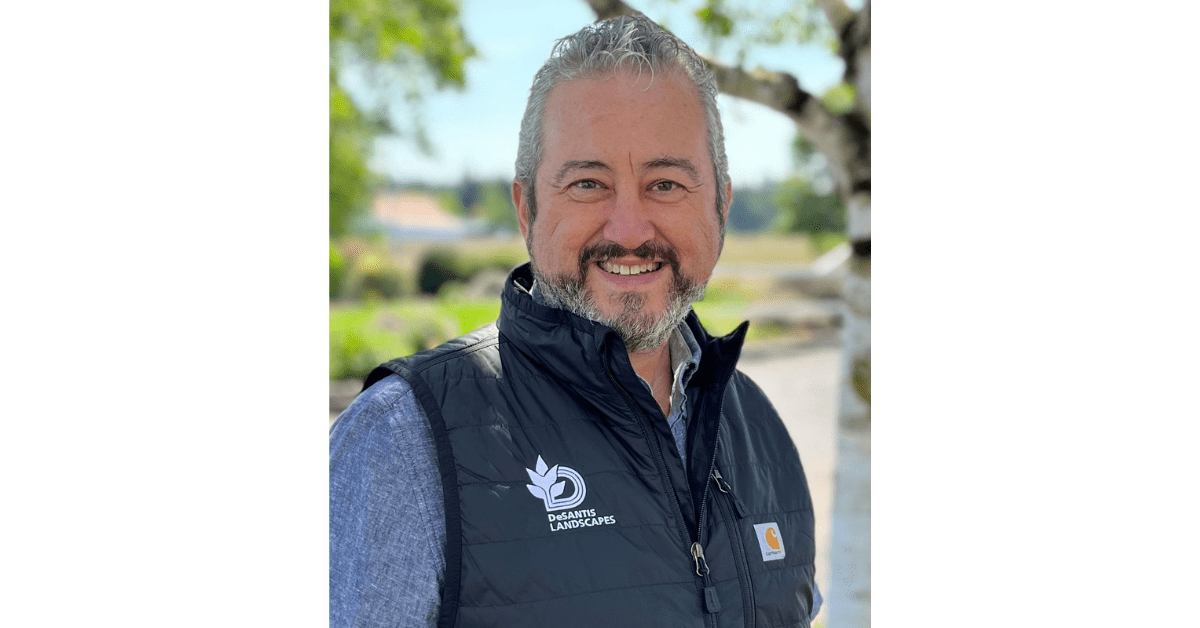
In 1974, DeSantis Landscapes, based in Portland, Oregon, was just a landscape and irrigation start-up. Over the years, the business has steadily grown to serve the Greater Portland Metro and beyond and is now at $18 million in annual revenue.
Second-generation owner Dean DeSantis took a journey of his own before coming to take the helm of his father’s landscaping business. After graduating from the University of Oregon with a business degree in finance, DeSantis taught English for a year and a half in Japan. He later served in the Peace Corps for two years.
“It was definitely a journey of self-discovery, of understanding,” DeSantis says. “It was perfect. I was young, trying to figure out what I wanted to do with my life and identity and all that kind of stuff.”
When he returned to the U.S. after six years living abroad, he earned a graduate degree and was working in education. His position with AmeriCorps required him to travel frequently and when his wife had twins, he began to consider putting down roots.
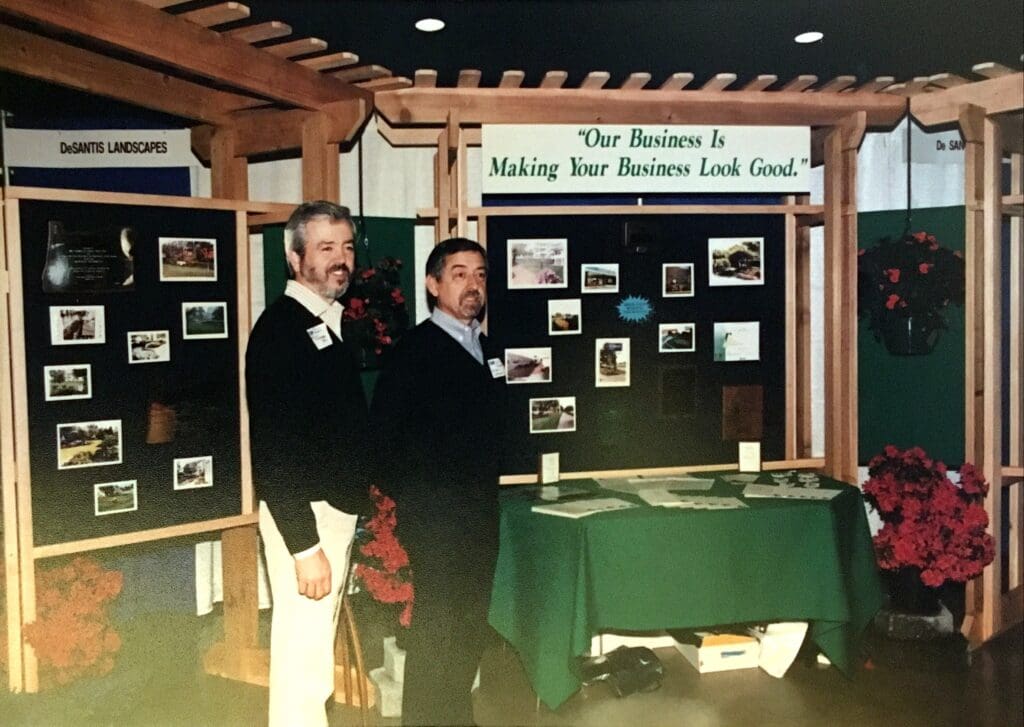
Photo: DeSantis Landscapes
One Father’s Day, his father mentioned he needed to figure out an exit strategy, and DeSantis says it was a case of the right timing, as he wanted to offer his own kids a similar childhood he had experienced.
In 2006, DeSantis bought the company from his father. At first when he returned to the business, he felt he had to prove himself and struggled with imposter syndrome. He didn’t want staff to think he was only there because he was Tony DeSantis’ son. Now that he’s more experienced, he’s gotten past that stage.
He enjoys being part of a great family legacy and surrounds himself with an amazing team of professionals.
While other second- and third-gen owners in his peer group say they struggled with their fathers being more Type A individuals, DeSantis says his father respected him to take the business and grow it as he saw fit.
“He was always there, if I went to him, but he was never looking over my shoulder, second-guessing what I did, so it’s a good mutual respect relationship,” DeSantis says.
A People-First Culture
DeSantis says the company has always had a ‘people first’ culture from the beginning. An ‘aha’ moment for him was when he read Good to Great: Why Some Companies Make the Leap and Others Don’t by Jim Collins. The book talks about getting the right people on the bus, getting them in the right seats and figuring out where you’re going to drive that bus.
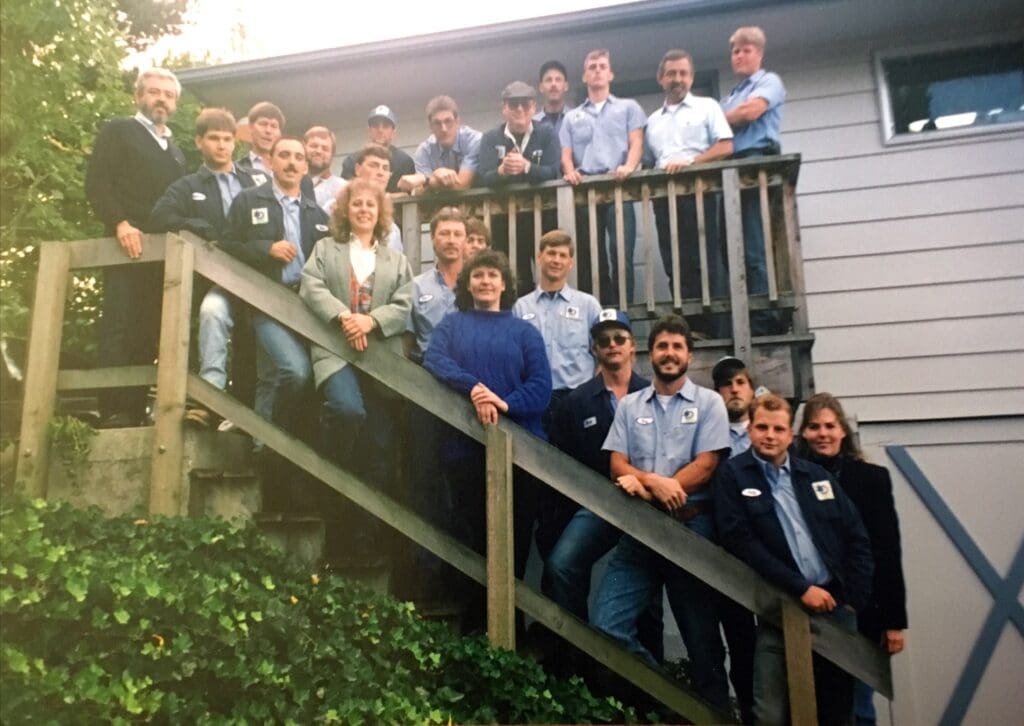
“That’s been really my focus is trying to understand what is each individual’s natural, God-given talents, and how do I give them more of that?” DeSantis says. “Because to me, if we can focus on those things, then it’s not work. It’s just you’re in your sweet spot.”
He says focusing on their employees’ strengths rather than trying to fit people into specific molds is one of their company’s keys to success.
“It’s not always easy as you’re trying to scale a business,” DeSantis says. “Standardization is pretty important as well, so there are challenges with that. There are some things where this is just part of the job. Maybe you’re not very good at this part of it, but you have to work around this. But I think listening to your team, understanding where they want to go and what ideas they’ve got to improve the business or to deal with a certain situation, matters.”
DeSantis says he is the opposite of a visionary leader. Rather, he is more collaborative and likes to bring people together and figure out where to go. He says that surrounding himself with a talented team helps him not feel like everything is on his shoulders.
“As we’ve grown, I’ve been able to build that team and really trust them that they’ve got it,” DeSantis says. “That’s allowed us to scale and grow the business.”
DeSantis admits he’s not a horticulturist, so he comes to the landscape industry with a different perspective. With his educator background, training and professional development are another key part of their company culture.
He says one of the lessons he learned while with the Peace Corps is if you want to make something better, you have to help others reach their potential and achieve their goals.
“That’s really what it’s about, trying to understand what are the local needs, and how can I bring help them bring resources, training, to help a community get to the next level achieve their goals,” DeSantis says. “That’s one thing I definitely learned was we can all reach our goals if we can help others reach theirs and reach their potential.”
DeSantis sums up his company’s shared values with their 25 Fundamentals or the DeSantis Way. He says these fundamentals have been valuable for helping them focus their behaviors. For years, they would recite their mission statement in company meetings, but it felt rote and not actionable.
“The fundamentals for us, it’s really something that’s been actionable,” DeSantis says. “We use it very often. If someone gets a testimonial from a client praising their work or something, we always bring it back to the fundamental what they did that drew out that testimonial, that positive review from a client. We’re able to point back to here’s what you did to be successful.”
Celebrating 50 Years and Looking Forward
When DeSantis reflects on the five decades they’ve been in business, he says the first thing that comes to mind is the number of lives they’ve impacted.
“A lot of our biggest fans on social media are former employees who have moved on and started their own business,” DeSantis says. “I think just the fact that they’re still engaged and think fondly about DeSantis Landscapes and their time here, and they still have friendships, I think is a strong testament. We’ve made the world a lot more beautiful through our landscaping work that we do on a daily basis.”
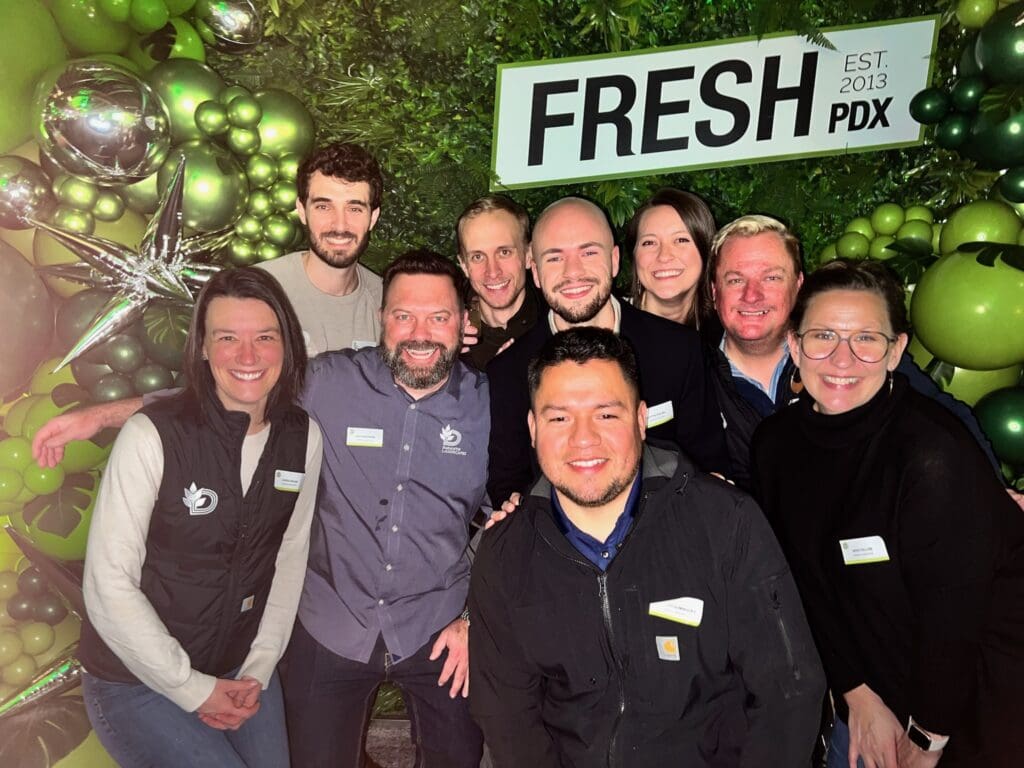
Under DeSantis’ leadership they’ve also made significant efforts in sustainability. He says it was important to his father, and they have taken it a step further by focusing on their environmental, social, and community impacts.
A notable aspect of DeSantis Landscapes’ growth is the fact it is 100% organic. DeSantis says over the years, they’ve considered potential acquisitions but none of them were a good fit for them.
“There are some days when I feel like it’s been a pretty slow path,” DeSantis says. “But my dad said early on, one of his mantras was, ‘We’re only going to grow as fast as we can attract talent.’ I think we really stuck with that mantra.”
The company currently has 150 employees on staff. He says growing too big too fast can make it hard to maintain your culture and your quality of work. DeSantis prefers to focus on steady growth where they can maintain their standards and culture.
“I’m excited about the growth plans that we have and the team that we’ve got,” DeSantis says. “I’m a strong believer that there’s still a favorable spot in the marketplace for a strong, locally owned company. People love to work with local decision-makers. When I go out and work with our sales team, and say, ‘Look, you can give me a call if you have any issues. I’m right here.’ That means something rather than, ‘Oh, call corporate.’”
He sees this milestone as the beginning of a new chapter as they have been building out their leadership team. DeSantis is excited about where his team’s talent will take them.



